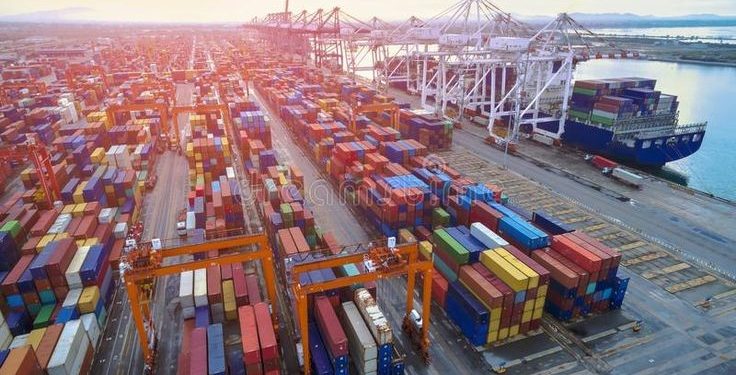China, Japan, and South Korea have pledged to enhance regional trade cooperation in response to U.S. President Donald Trump’s impending tariffs, set to take effect on April 2. This commitment emerged from the first economic dialogue among the three nations in over five years, held on Sunday.
The trade ministers from these leading Asian economies agreed to pursue comprehensive and high-level negotiations for a trilateral free trade agreement (FTA). This initiative aims to promote both regional and global trade, strengthening economic ties amidst growing protectionist measures from the United States.
President Trump’s administration has announced a series of tariffs targeting various imports, including a 25% levy on all foreign-made vehicles, effective April 2. Dubbed “Liberation Day,” these measures are intended to counter perceived unfair trade practices and encourage domestic manufacturing. However, they have raised concerns about escalating trade tensions and potential global economic repercussions.
The automotive industry, in particular, is bracing for significant impacts. Major Asian manufacturers such as Toyota, Honda, and Nissan have already experienced notable declines in their stock prices following the tariff announcement. These companies face the dual challenge of increased costs and potential decreases in U.S. sales due to higher vehicle prices.
In response to these developments, China, Japan, and South Korea are accelerating efforts to finalize a trilateral FTA. Such an agreement would not only mitigate the adverse effects of U.S. tariffs but also bolster intra-regional trade and economic resilience. The leaders of these nations have expressed a shared commitment to free trade principles and opposition to unilateral protectionist measures.
The international community is closely monitoring these developments, as the outcome of these negotiations could reshape global trade dynamics. A successful trilateral FTA among China, Japan, and South Korea would represent a significant shift towards regional integration and a collective stand against rising protectionism.
As the April 2 deadline approaches, businesses and policymakers worldwide are preparing for the ripple effects of the U.S. tariffs. The coordinated response from Asia’s economic powerhouses underscores the complexities of global trade relations and the strategic maneuvers nations are adopting to safeguard their economic interests.
























































